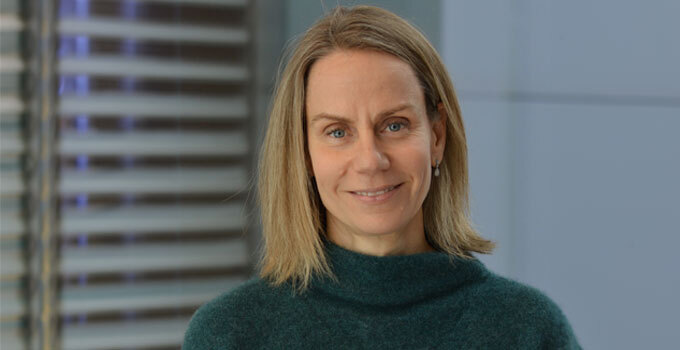OICR’s Dr. Michelle Brazas will lead the initiative which has received $6 million in funding from CIHR and Genome Canada
Researchers face a tsunami of data and a growing set of powerful data analysis tools. Within these hide the potential for new breakthroughs in cancer research and other fields, but to get the most out of them researchers need up-to-date skills.
To drive the use of health and life science data in Canada for scientific discovery, the Canadian Institutes of Health Research (CIHR) and Genome Canada have awarded $6.05 million in funding over six years to establish the Canadian Bioinformatics, Computational Biology and Health Data Sciences Training and Community Platform.
OICR News chatted with Dr. Michelle Brazas, Associate Director of Adaptive Oncology at OICR and Scientific Director of the OICR-hosted Bioinformatics.ca, about the Platform, which she will lead in collaboration with colleagues across the country.
Can you tell us what the goals of the Platform are and why it is needed?
The goal of our Platform is to accelerate capacity building in bioinformatics, computational biology and health data sciences, with an emphasis on reaching audiences that haven’t been represented in these fields. The need to accelerate capacity building exists because in Canada, and globally, there is a skill gap between what researchers are taught in their formal education and what they need for their research work.
Universities and colleges provide an excellent and needed foundation, but as technologies change and people move into niche uses of data, they need additional skills. For example, in the context of cancer research, we are producing massive amounts of genomic and other ‘omics’ data, which in a way is the easy part. It is the analysis and interpretation that is hard, which is why we need to equip our researchers with data analysis skills so that they can leverage these new technologies to make discoveries which otherwise would not be possible.
How will the Platform achieve this?
Training alone will not get us to where we need to be, as learning continues beyond the classroom. So, with that in mind community support and mentorship is being given equal weight. We want to grow a national network of skilled researchers who know and support each other. We will be expanding our community activities and locations, providing programming that is both national and local, in regions throughout the country. To ensure that individuals from equity-deserving groups are benefitting from the Platform’s work, the concept of IDEA – inclusivity, diversity, equity, accessibility – will be central to what we do.
What will the training look like?
On the training side, we plan to bring together in a catalogue the training programs from key Canadian and international training providers to create a more cohesive strategy to deliver educational opportunities, instead of the piecemeal approach that has existed to date. Some of our training will be in-person, but we also know because of our pandemic experience with Bioinformatics.ca, that online training can be an effective mode of instruction as well. Researchers are already very busy, so we aim to provide short-format training opportunities in a variety of formats that deliver specifically what these researchers need.
We will also be offering training awards aimed at increasing the participation of individuals from equity-deserving groups, for example, Black and Indigenous researchers. We also plan to work at establishing partnerships with groups representing these communities so that we can co-develop training to serve their needs.
Can you tell us why mentorship is so important to the success of this initiative?
Mentorship is critical in a few different ways. Firstly, mentorship can help accelerate capacity building across the country, by guiding trainees on other professional and leadership skills relevant for their career development. Mentorship is also an important way to bring individuals from equity-deserving groups into the field and ensure they have the same opportunities to advance their careers. In time, trainees will become leaders in the community, so the mentorship cycle will also help set us up for long-term success.
What are the next steps for the Platform?
With funding from CIHR and Genome Canada in place, we are now working on putting our plan into action. Fortunately, we have a strong group of leaders from across Canada as well a strong foundation with Bioinformatics.ca, which will allow us to get the Platform up and running more quickly than if we were starting from scratch. We will have more to share with the community in a little while, but in the meantime, those who are interested in getting involved can get in touch with us at Bioinformatics.ca.
Dr. Michelle Brazas can be reached at support@bioinformatics.ca.

